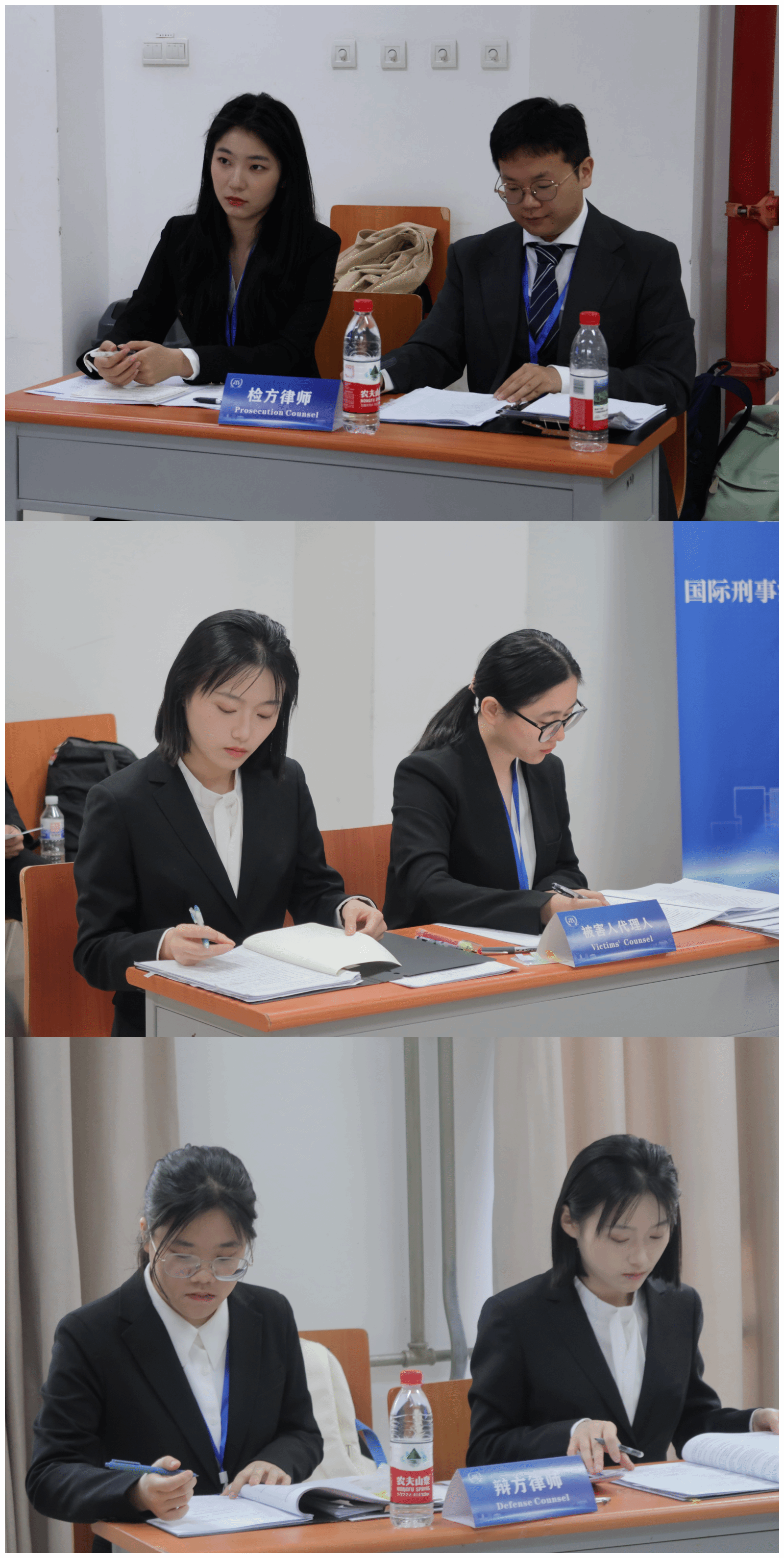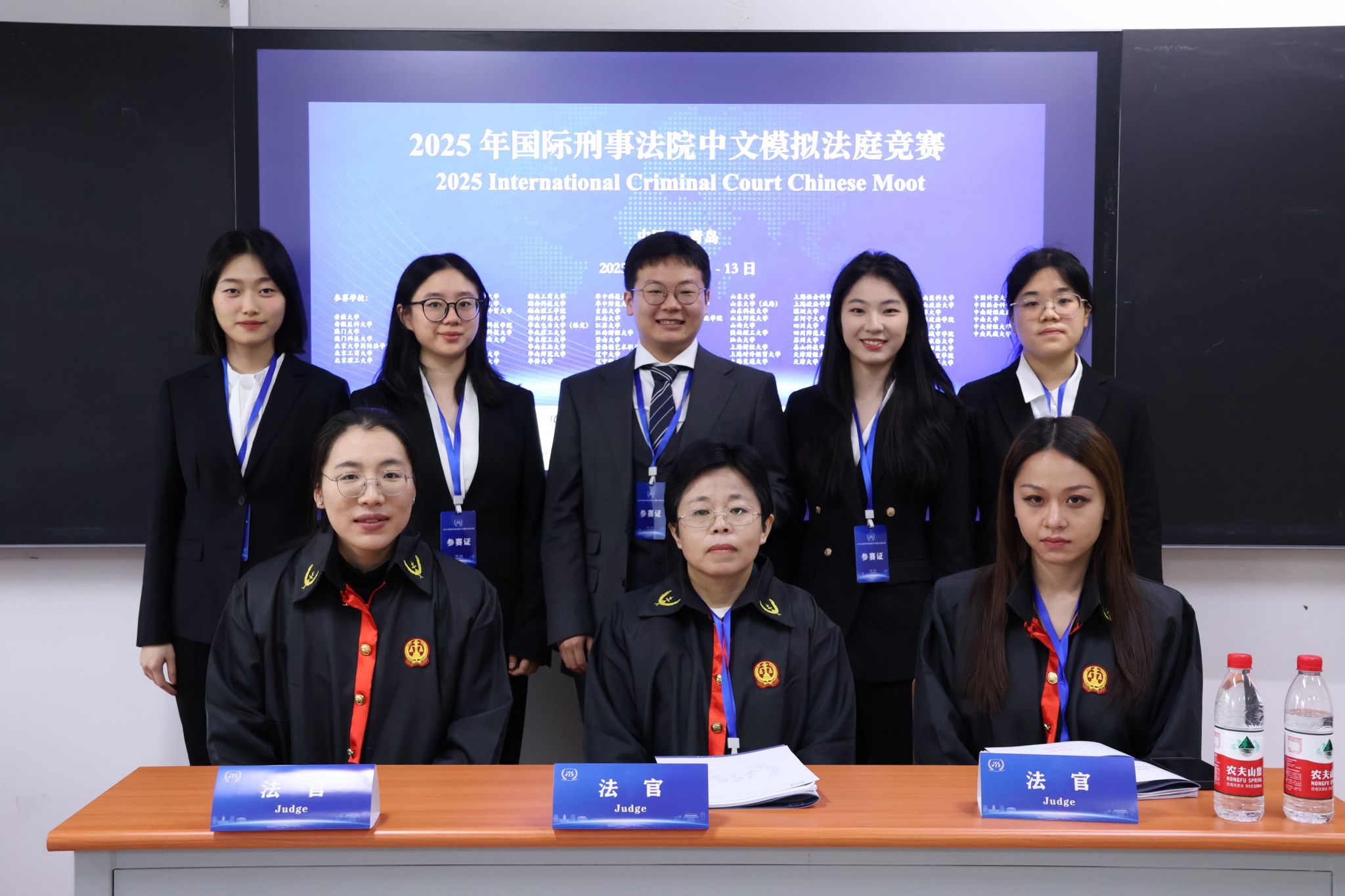The 2025 International Criminal Court (ICC) Chinese Moot Court Competition concluded at Shandong University (Qingdao Campus) on April 13. A total of 105 university teams nationwide participated and only 45 teams comprising more than 300 students qualified for the final, including those from HNU and other prestigious universities such as Tsinghua University, Shanghai Jiao Tong University, and Sun Yat-sen University. Team HNU, composed of undergraduates Cheng Ziheng, Fang Jingyi, Lyu Shuxin, Qi Feiyang, and Zou Tingting from the Law School took home the first prize through excelling in several highly competitive rounds.
Coached by Associate Prof. Wei Decai and student mentor Cui Wenbo, Team HNU advanced through the oral argument and rebuttal stages with strong reasoning and courtroom performance in the first round. Their high scores were ultimately secured for extraordinary written memorials and oral advocacy, marked by precise interpretation of the Rome Statute and insightful analysis of complex issues such as crimes against humanity and gender apartheid.

Team HNU at the competition

A group photo of Team HNU after the competition
The ICC Moot Court Competition (Chinese Version), founded in 2013 by the Grotius Centre for International Legal Studies with support from the ICC, is the Chinese-language court moot (Chinese is among the six working languages of ICC). It is widely recognized —alongside the Philip C. Jessup International Law Moot Court Competition and the Red Cross International Humanitarian Law Moot—as one of the three most reputable competitions in public international law.
In recent years, HNU Law School has leveraged moot court competitions as a key platform for practicum designing and talent nurturing. To align with the standards of relevant competitions, the School has committed special resources to the arrangement of competing teams, seasoned coaches, and specialized facilities. This competition-based approach has yielded impressive outcomes through helping students hone advocacy skills, deepen understanding of international law, and cultivate global competence.
Translated by Han Yunsheng
Proofread by Kuang Xiaowen, Yang Jie